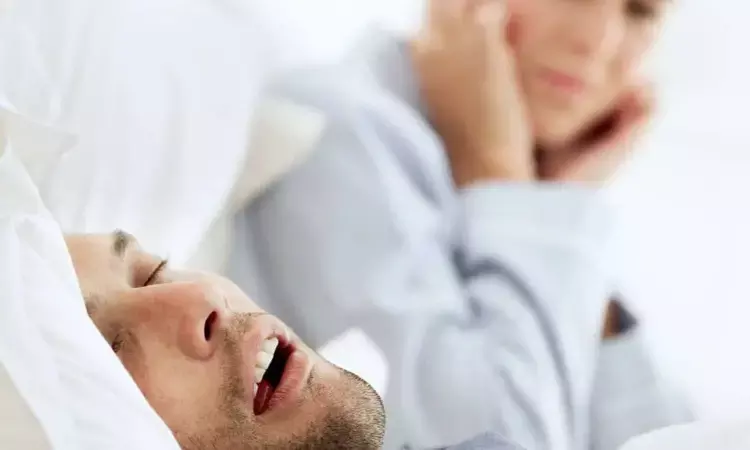- Home
- Medical news & Guidelines
- Anesthesiology
- Cardiology and CTVS
- Critical Care
- Dentistry
- Dermatology
- Diabetes and Endocrinology
- ENT
- Gastroenterology
- Medicine
- Nephrology
- Neurology
- Obstretics-Gynaecology
- Oncology
- Ophthalmology
- Orthopaedics
- Pediatrics-Neonatology
- Psychiatry
- Pulmonology
- Radiology
- Surgery
- Urology
- Laboratory Medicine
- Diet
- Nursing
- Paramedical
- Physiotherapy
- Health news
- Fact Check
- Bone Health Fact Check
- Brain Health Fact Check
- Cancer Related Fact Check
- Child Care Fact Check
- Dental and oral health fact check
- Diabetes and metabolic health fact check
- Diet and Nutrition Fact Check
- Eye and ENT Care Fact Check
- Fitness fact check
- Gut health fact check
- Heart health fact check
- Kidney health fact check
- Medical education fact check
- Men's health fact check
- Respiratory fact check
- Skin and hair care fact check
- Vaccine and Immunization fact check
- Women's health fact check
- AYUSH
- State News
- Andaman and Nicobar Islands
- Andhra Pradesh
- Arunachal Pradesh
- Assam
- Bihar
- Chandigarh
- Chattisgarh
- Dadra and Nagar Haveli
- Daman and Diu
- Delhi
- Goa
- Gujarat
- Haryana
- Himachal Pradesh
- Jammu & Kashmir
- Jharkhand
- Karnataka
- Kerala
- Ladakh
- Lakshadweep
- Madhya Pradesh
- Maharashtra
- Manipur
- Meghalaya
- Mizoram
- Nagaland
- Odisha
- Puducherry
- Punjab
- Rajasthan
- Sikkim
- Tamil Nadu
- Telangana
- Tripura
- Uttar Pradesh
- Uttrakhand
- West Bengal
- Medical Education
- Industry
Sleep-Disordered Breathing Raises Mortality Risk for Patients With Diabetes, suggests study

Czech Republic: A new study has found that diabetes patients with sleep-disordered breathing face significantly higher mortality risks.
The study, published in the Journal of Clinical Sleep Medicine, unveiled alarming findings regarding the impact of sleep-disordered breathing (SDB) on patients with diabetes, revealing a significant increase in mortality risk associated with this condition. The research highlights that individuals with diabetes who suffer from moderate to severe forms of sleep-disordered breathing face heightened all-cause mortality rates, emphasizing the critical need for effective management of this often-overlooked aspect of diabetes care.
Researchers discovered that low average oxygen saturation levels (below 91.4%) were strongly associated with significantly higher risks of all-cause and cardiovascular mortality, with adjusted hazard ratios (aHR) of 0.52 and 0.44, respectively. In contrast, higher apnea-hypopnea and oxygen desaturation indices (exceeding 31 and 13.3, respectively) correlated with an increased risk of all-cause mortality, reflected by an adjusted hazard ratio of 1.58.
Sleep-disordered breathing encompasses a range of conditions that disrupt normal breathing patterns during sleep, including obstructive sleep apnea (OSA). Sleep-disordered breathing (SDB) frequently occurs alongside diabetes mellitus (DM), yet there is a limited amount of data on how SDB affects mortality rates in individuals with diabetes. Considering this, Teodora Vichova, Department of Pathophysiology, Third Faculty of Medicine, Charles University, Prague, Czech Republic, and colleagues aimed to assess the impact of SDB variables and the presence of DM on all-cause, cardiovascular disease (CVD), and non-CVD associated mortality.
For this purpose, the researchers analyzed data from the Sleep Heart Health Study, a multicenter prospective observational study comprising 5,780 patients with both polysomnography and mortality records, among whom 453 had diabetes mellitus (DM). Survival analysis and proportional hazard regression models were employed to determine the adjusted hazard ratios (aHR) for mortality.
The study led to the following findings:
- Patients with DM and an average SpO2 >91.4% had significantly lower all-cause (aHR 0.52) and CVD mortality risk (aHR 0.44) as compared with patients with SpO2 below this value.
- Apnea-hypopnea index >31 (aHR 1.58) and oxygen desaturation index >13.3 (aHR 1.58) were associated with increased all-cause mortality in participants with DM on treatment.
- Sleep efficiency and proportion of rapid-eye movement (REM) sleep did not have any impact on mortality in patients with DM, and thus differed significantly from individuals without DM, where increased all-cause mortality was observed in those with sleep efficiency <81.4% (aHR 0.77) or REM sleep <14.9% (aHR 0.78).
"The study's findings reinforce the urgent need for greater awareness and proactive management of sleep-disordered breathing in patients with diabetes," the researchers wrote.
"By addressing this critical aspect of patient health, medical professionals can significantly impact survival rates and quality of life for those affected by diabetes and sleep-related breathing disorders," they concluded.
Reference:
Vichova T, Petras M, Waldauf P, Westlake K, Vimmerova-Lattova Z, Polak J. Sleep-disordered breathing increases mortality in patients with diabetes. J Clin Sleep Med. 2024 Aug 30. doi: 10.5664/jcsm.11320. Epub ahead of print. PMID: 39206667.
Dr Kamal Kant Kohli-MBBS, DTCD- a chest specialist with more than 30 years of practice and a flair for writing clinical articles, Dr Kamal Kant Kohli joined Medical Dialogues as a Chief Editor of Medical News. Besides writing articles, as an editor, he proofreads and verifies all the medical content published on Medical Dialogues including those coming from journals, studies,medical conferences,guidelines etc. Email: drkohli@medicaldialogues.in. Contact no. 011-43720751


